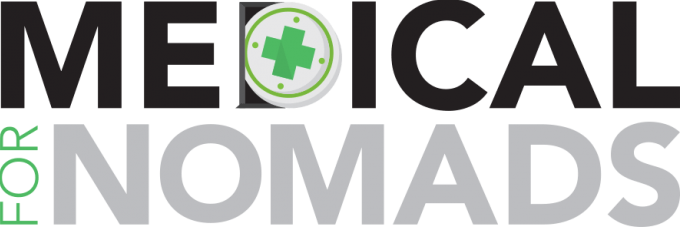How Much Is Private Medical Insurance?
The Correct Answer By Insurance Experts
I get asked this question a lot and I know it can be confusing especially when it comes to understanding the breakdown of costs involved.
From the type of policy and coverage level to your age, pre-existing conditions, and even your lifestyle, each aspect plays a crucial role in determining the cost of your insurance.
Even the geographic scope of your policy and the duration of your stay abroad can significantly impact the overall cost.
In this article, I’ll be drawing on my expertise to help you understand these factors and how they might affect the cost of your private medical insurance.
My aim is to provide you with valuable insights that can guide you in making informed decisions about your medical insurance needs.
Let’s dive straight in.
What Is The Average Cost Of Private Medical Insurance For Nomads?
How long is a piece of string? It’s so hard to answer how much private insurance will cost because each individual will vary. Depending on so many factors, your medical insurance can be between $2000 and $15,000.
I can, however, break down the average cost of medical insurance for people based on ages, based on our database.
Ages 10-20: $750-1500
Ages 20-40: $1500-5000
Ages: 40-60: $5000-10,000
Ages: 60+: $10,000+
Ages 10-20:
$750
-$1,500
Ages 20-40:
$1,500
-$5,000
Ages 40-60:
$5,000
-$10,000
Ages 60+:
$10,000+
Note: You can see that there isn’t much of a jump in health insurance costs between ages 40-yo and a 10-yo.
The price tends to get more expensive as you get older. Of course, the country you live in will make a difference as well. Medical insurance will be more affordable in lower economy countries as the average healthcare costs are more affordable.
As you can see, there is certainly no definite answer to the cost of private medical insurance, and anywhere that gives you a figure is basing this from extremely rough estimates and is probably going to be incorrect anyway.
If you want to find out the cost of health insurance accurately, you are most definitely going to need to get a quote from a provider who can price accurately.

International Coverage Will Be Cost Slightly More
Yes, I can confirm that international coverage does indeed cost a bit more based on our cost factors. This is primarily due to the extensive geographic coverage it provides.
When you opt for a policy that covers you globally, you’re essentially investing in the flexibility and security of being insured in multiple countries. This naturally comes with a higher premium.
As someone who frequently travels myself, I can personally highlight the importance of comprehensive global coverage. It’s not just about the medical emergencies, but also about the peace of mind knowing that you’re covered, no matter where you are.
In my experience, it’s about finding the right balance between cost and coverage. It’s not always about going for the cheapest option, but rather understanding what you’re getting for your money.
For instance, the best insurance policies might offer additional benefits like remote access to healthcare specialists, which can be invaluable for internationally-mobile individuals.
Ultimately, the goal is to understand your needs and find a policy that offers the best value for you. It’s a complex process, but with the right information and guidance, it’s entirely achievable.
Major Medical Insurance Is Actually Cheaper Than Basic Health Insurance
Major medical insurance is designed to cover significant health issues, such as surgeries, hospital stays, or treatment for serious illnesses. These are events that don’t happen frequently but can result in substantial medical bills when they do occur.
On the other hand, comprehensive health insurance covers a broader range of medical services, including both minor and major health issues. This could include routine doctor’s visits, preventive care, prescription medications, and more.
Now, you might wonder why comprehensive health insurance premiums are typically higher, even though major medical insurance covers high-cost medical events. The reason lies in the frequency of claims.
Statistically, minor health issues occur more frequently than major ones. This means that with a comprehensive plan, insurance companies are more likely to receive claims regularly for minor health issues. Each claim represents a cost to the insurance company, and these costs add up over time.
So, while each individual claim for minor health issues might be less than a claim for a major health issue, the overall cost to the insurance company can be higher due to the frequency of these claims. This is reflected in the higher premiums for comprehensive health insurance.
In contrast, major medical insurance focuses on less frequent, high-cost events. While the cost of an individual claim can be high, these claims are less frequent, resulting in lower overall costs for the insurance company and, consequently, lower premiums for the policyholder.

Direct Billing To Hospitals Will Factor In The Cost Of Your Medical Insurance
Direct billing is a process where the insurance company pays medical costs directly to the healthcare provider, rather than reimbursing the policyholder later. This can be a significant advantage, especially in the case of major medical expenses where out-of-pocket costs could be substantial.
Based on what I’ve seen, policies that offer direct billing often come with slightly higher premiums. This is because the insurance company is taking on the responsibility of settling the bills directly, which can involve additional administrative work and costs.
However, the peace of mind and convenience it offers can be invaluable, particularly for globe-trotting nomads and entrepreneurs who may not have immediate access to large sums of money in the event of a medical emergency.
In my view, the slightly higher cost is a small price to pay for the assurance that your medical bills will be taken care of directly, allowing you to focus on recovery rather than financial logistics. It’s a feature I highly recommend considering when choosing a medical insurance policy.
Getting a Personalised Or Tailored Medical Insurance Will Cost More
Opting for a personalised or tailored medical insurance plan may cost more, depending on who you go with. This is primarily because these plans are designed to cater specifically to your unique needs and circumstances, which can involve more complex risk assessments and administrative work for the insurance provider.
In my experience, tailored plans often include coverage for specific activities or conditions that standard plans may not cover. Also if you need specific outpatient benefits, or specific inpatient benefits, this might cost you more.
For instance, if you’re a digital nomad who enjoys high-risk activities like parachuting or spearfishing, a tailored nomad insurance plan can provide coverage for potential injuries from these activities.
While the premiums for such plans can be higher, it’s important to consider the value they provide. A tailored plan can offer you the peace of mind knowing that you’re covered for the specific risks you face, which can be invaluable in the event of a medical emergency.

Different Types Of Policies Will Cover More And Cost More
The type of policy you choose can significantly impact both the level of coverage you receive and the cost of your premiums. From what I know, the more comprehensive the policy, the more it tends to cost. This is because these policies cover a wider range of medical services and situations.
For instance, a basic health insurance policy might cover only emergency medical expenses, while a more comprehensive plan could include coverage for preventative care, prescription medications, mental health services, and more. Similarly, a policy that covers only a single country will typically be less expensive than a global coverage plan.
Additionally, policies with higher limits or fewer exclusions also tend to cost more. For example, if an insurance company covers the loss or theft of personal electronic items up to $5,000, they are excluding all claims for more than this amount.
If another company covers the same thing, but up to $3,000, the potential loss to the insurance company on a claim is $2,000 less, which reduces their potential liability and allows them to charge lower premiums.
In essence, the cost of your medical insurance is directly related to the depth of the coverage it provides. It’s a delicate balance between ensuring you have adequate protection and managing your insurance costs.
As a medical insurance specialist, I always recommend carefully considering your personal needs, lifestyle, and budget when choosing a policy.
Other Factors That Might Affect The Cost Of Private Medical Insurance
Certainly, there are several other factors that can affect the cost of private medical insurance.
Age: As we age, the risk of health issues tends to increase, and so do insurance premiums. Older individuals generally pay higher premiums than younger ones.
Length of stay: If you’re planning to stay abroad for a longer period, you may require a long-term plan, which could be more expensive.
Extra coverage: Extras like dental, vision, or maternity coverage can increase the cost of your plan.
Your activities: If you’re a thrill-seeker who enjoys high-risk activities, you might need additional coverage, which could increase your premium.

Conclusion
In conclusion, the cost of private medical insurance is influenced by a multitude of factors. From the type of coverage you choose, whether it’s basic, comprehensive, or tailored, to the geographic scope of your policy, each aspect plays a role in determining your premiums.
Age and lifestyle choices can also affect the cost. Even the way your policy is structured, such as the inclusion of direct billing, can impact the overall cost.
As a medical insurance specialist, I’ve seen how these factors can vary greatly from person to person. It’s crucial to understand these elements and how they apply to your specific situation.
Remember, the goal is not to find the cheapest policy, but the one that offers the best value for your needs. It’s about striking a balance between cost and coverage, ensuring that you’re adequately protected without overstretching your budget.
You can compare cover levels if you aren’t sure here.
As I always say, your health is your wealth, especially when you’re far from home. So, invest time in understanding your insurance options and make informed decisions that safeguard your health and financial wellbeing.











